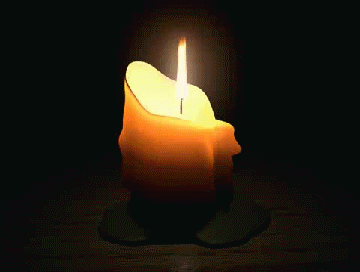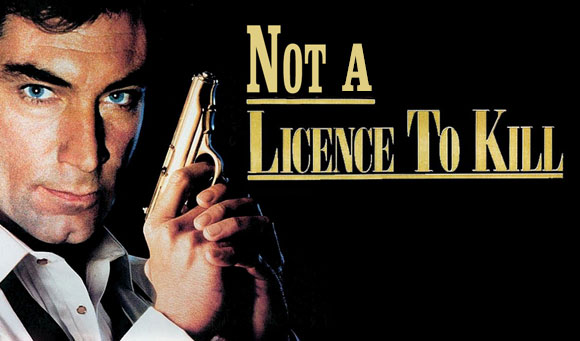
Light or Heat? by Deborah Beach Giordano
A Light in the World
 On Saturday I learned of the passing of a well-beloved teacher. Rabbi Jonathan Sacks, his memory a blessing, rightly indeed was called “rabbi”: a teacher of righteousness who instructed both in his words and in the living of his life.
On Saturday I learned of the passing of a well-beloved teacher. Rabbi Jonathan Sacks, his memory a blessing, rightly indeed was called “rabbi”: a teacher of righteousness who instructed both in his words and in the living of his life.
His reflections were always thought-provoking and compassionate. Never did he condemn others, but sought to identify and understand the essential humanity in the best and the worst of us. I think Rabbi Sacks would have smiled at that: to him there was no “best” or “worst,” only “us”: our shared human nature.
This is not to suggest that we ought not to strive to do our best; that we sit idle, like so many unleavened lumps. No, we are each called to grow into a greater, “better” humanness. But the moment we begin to consider ourselves as “best” — as “superior” — the trap is set. None are so blind as those dazzled by the glow of self-satisfaction; none so liable to fall into the pit as those who are gazing at the faults of others.
Slurs and Solutions
Rabbi Sacks was, of course, a Jew. This calls to mind how freely the term “Nazi” has been bandied about these last several years, a fact he disliked. Its use trivializes the real experience of the Holocaust — while offering a sinister echo and an alarmingly similar power to that of the term: “dirty Jew” during that terrible time. It is a label used to dehumanize; to set “us” apart from “them” — those others, utterly unlike ourselves; in a single breath sweeping aside all need to consider our common humanity.
Those we have so branded are collectively evil, corrupt, beyond redemption, outside of our concern. “They” become “it”: a monolithic lump, devoid of individuality. The label enables us to hate, with impunity, those others whom we consider the source of so many troubles. If only they were eliminated, that would be the perfect solution for our problems. If they simply disappeared off the face of the earth, the world would be a better place.
I have received messages from some who claim to be Christians, announcing that “those others” are the problem, and that we need to rid ourselves of them. It is possible that, as with the “good Germans” of the 1930s and 40s, these labelers fail to realize the strength of the poison they have ingested, no idea of the depths it reaches, or how far it can spread — this toxic elixir that promises perfection!
 But once the “enemy” has become no longer a human being but a problem, a danger to our health and safety, fear and its close ally, hatred, are unleashed. Desperate times call for desperate measures — unlimited, unrestrained measures — and then The Night of Broken Glass, random attacks on shopkeepers, confiscation of property and valuables, and, finally, loading up the boxcars to ship those awful people away, somewhere where we won’t have to deal with them.
But once the “enemy” has become no longer a human being but a problem, a danger to our health and safety, fear and its close ally, hatred, are unleashed. Desperate times call for desperate measures — unlimited, unrestrained measures — and then The Night of Broken Glass, random attacks on shopkeepers, confiscation of property and valuables, and, finally, loading up the boxcars to ship those awful people away, somewhere where we won’t have to deal with them.
Oh, but that couldn’t happen here, we cry. Not with us. Not with our superior intellects, our laws, our freedoms. Ah, but it has happened, terribly, horribly, too many times before, in societies abundant with well-educated people, a free press, and judges learned in justice and the law; not only in Germany a century ago, but in recent times and in many nations. Whole populations exterminated: the dissenters, the disloyal, the demented, the defectives… all those identified as impediments to the achievement of The Ideal World.
Speaking Out
First they came for the socialists,
and I did not speak out —
because I was not a socialist.
Then they came for the trade unionists,
and I did not speak out —
because I was not a trade unionist.
Then they came for the Jews,
and I did not speak out —
because I was not a Jew.
Then they came for me —
and there was no one left to speak for me.
~ Reverend Martin Niemöller
This memorable statement — which we so often and eagerly quote — is not a prayer. It does not offer a teaching on compassion nor does it sound the note of Christian charity. Its focus is survival and self-interest, concerned exclusively with single, personal safety and security. The punchline is: it suddenly got real “when they came for me”; it mattered when my life was at risk. It is only by inference that we are concerned with the earlier victims or for those who may be yet to come.
Reverend Niemoller’s words do have value, to be sure. They remind us powerfully (and personally) of our obligation to speak out: to speak honestly, truthfully; to issue warnings, to call for help, to say what others are too weak or too vulnerable to say; to refute lies, to challenge the conventional narrative. As Christians, we should include within this “speaking out” the question: “Where is God in this?”
 It is important to remember that it is a call to speak truthful language — not a License to Kill. Reverend Niemoller is known for his passionate commitment to nonviolence and his work for international disarmament. There is not a suggestion, not a hint in these words that the power gained by truth-speaking be used for harm.
It is important to remember that it is a call to speak truthful language — not a License to Kill. Reverend Niemoller is known for his passionate commitment to nonviolence and his work for international disarmament. There is not a suggestion, not a hint in these words that the power gained by truth-speaking be used for harm.
A related saying has suffered from a telling omission: “Speak the truth to power” was originally:
“Speak the truth to power in love.”
Speak truthfully, honestly, openly — with compassion, with healing intent; not hurtfully, judgmentally, hatefully. The truth, out in the open, is meant to heal, to bless, to bring light not only to one life — while shoving others aside — but to the world. “That those who live in darkness shall see a great light.”
Culture or Christ?
The worldly culture seeks to set us apart from one another; sorting us by color, gender, age, race, political affiliation, sexual orientation, heritage, height, weight, shoe size, etc., etc., etc., and then exploiting the shreds for its own uses; setting us against one another. Provoking distrust and discord, pandering to our blind, reactive self-interest, our dreams of glory as champions of a great cause, our certainty of our righteousness ….. the shrill blare of Ego drowns out the gentle summons of our heart: “We! Us! All children of God together; one with the Lord!”

It reminds me of an experiment from my freshman biology class. We were instructed to cut some sort of worm into several pieces, to demonstrate that each individual section could develop and thrive on its own. My lab partner Katt and I sliced our poor little specimen too fine: not a single one survived.
Self Destructive
To label another is to permit and enable inhumane treatment of that person — first, in our imagination, and then in our deeds. It is nothing less than rampant egotism, as we seek to establish our “superiority” to “those others.” “We’re not like them! We’re better.” No, we are exactly the same: human beings. And, by applying a label and discounting the person, we become the very thing we claim to abhor: merciless and murderous, uncaring and unChristian.
There is no one outside of the Beloved’s love and concern. Perhaps, though, it is possible to set ourselves outside of it by ignoring the Divine will and behaving as though we are gods. That is what we do when we judge and condemn and seek to crush and destroy, pretending to a power that is not ours. It is what we do when we treat others as problems rather than persons. It is what we do when we choose to be “righteous” rather than do good.
May Christ’s compassion and healing love abound,
Deborah ✟
Suggested Spiritual Exercises
How far would you go to achieve a “perfect” world in our world?
Read this variation of Niemoller’s quatrain, filling in particular names or groups, as appropriate:
When they took away those I hated,
I did not speak out —
because I was delighted.
When they attacked my enemies,
I did not speak out —
because I enjoyed watching them suffer.
When they destroyed those others
I did not speak out —
because it had nothing to do with me.
When death came to claim me,
the Lord Christ did not speak out —
because I had never spoken out for Him.
“As you do to the least of these…. you do to Me.”
~ Jesus of Nazareth